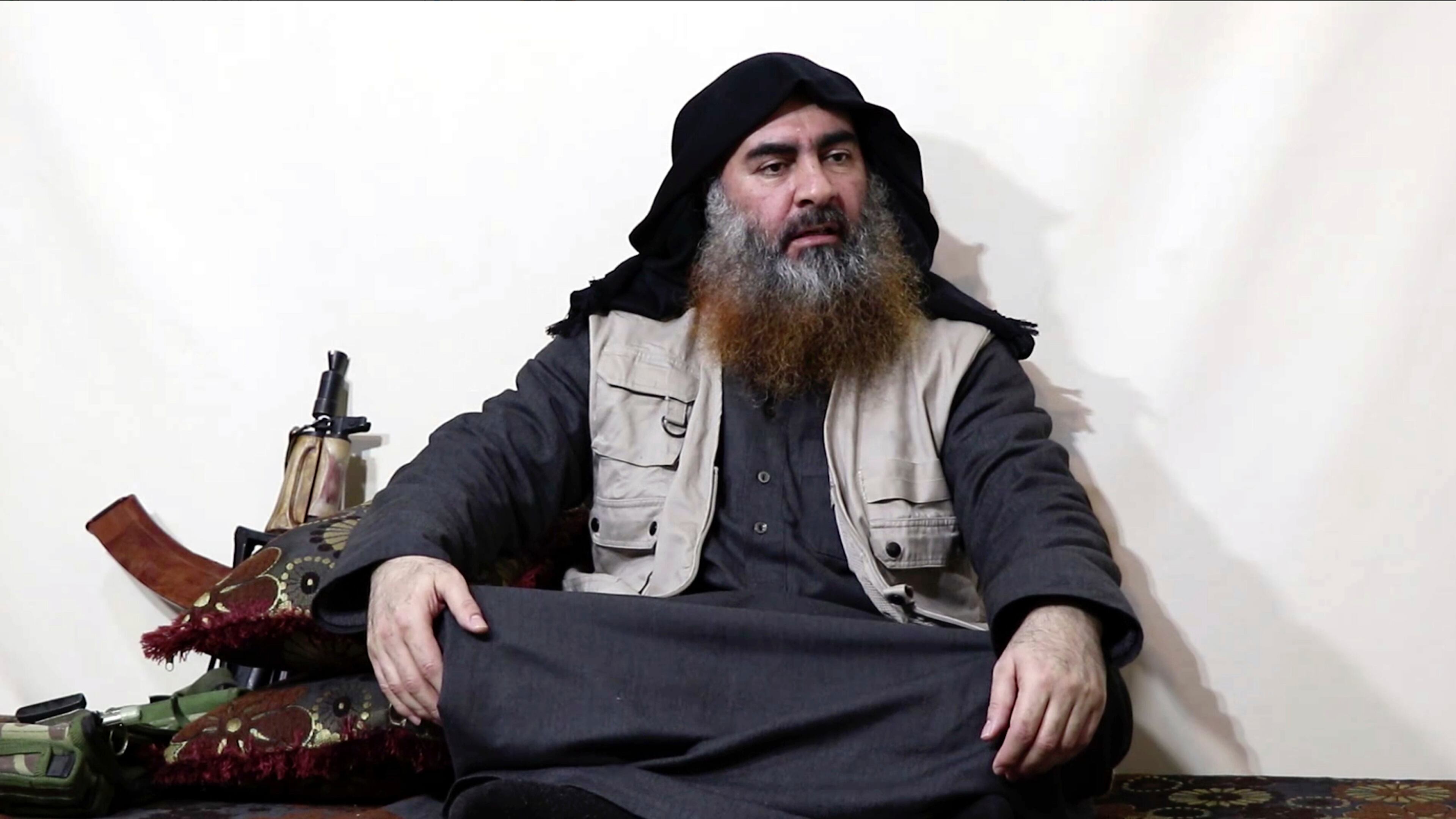Coalition forces collected DNA from Islamic State leader al-Baghdadi in 2004

The U.S. military took a DNA sample from Islamic State leader Abu Bakr al-Baghdadi more than a decade before American special forces killed him last weekend, Army records show.
The White House confirmed in a statement Sunday that "visual evidence and DNA tests confirmed Baghdadi's identity" after the terrorist leader blew himself up during a dramatic raid by special forces in northwest Syria.
There are conflicting reports on how the U.S. obtained a DNA sample to confirm that al-Baghdadi was killed in Saturday's raid. The newly released Army records suggest the U.S. has had access to a DNA sample for al-Baghdadi for many years.
»RELATED: Who was al-Baghdadi and why was he one of the most wanted men in the world?
The records released Tuesday date from the 10 months al-Baghdadi spent in two U.S.-run prison camps in Iraq in 2004. He is referred to by his given name of Ibrahim Awad al-Badry.
"DNA collected; at time of detention. Sent to FBI DNA lab, Quantico _ batch #K4579," one document says. "Sample transferred to AFDIL."
A Defense Department official Tuesday confirmed the records' statement that Coalition forces collected a DNA sample from al-Baghdadi in 2004.
Asked whether it processed that sample at its lab in Quantico, Va., the FBI declined to comment. The Armed Forces DNA Identification Laboratory, or AFDIL, did not return a request for comment.
The Washington Post reported Sunday that al-Baghdadi's sister voluntarily provided U.S. forces with the DNA sample they needed to confirm his death. Officials with the Kurdish-led Syrian Democratic Forces have also said one of their spies stole a pair of al-Baghdadi's underwear to obtain DNA to confirm his identity ahead of the raid.
»RELATED: Abu Bakr al-Baghdadi's likely replacement killed by US troops, Trump says
Coalition forces detained al-Baghdadi on Feb. 4, 2004, in Fallujah, Iraq. He was released Dec. 9, 2004, from Camp Bucca, a sprawling U.S.-run detention facility in southern Iraq, the records show.
Al-Baghdadi spent eight of his 10 months in custody at the notorious Abu Ghraib detention facility near Baghdad, an Army spokesperson said in 2016. The Army did not return CQ Roll Call's request to confirm that al-Baghdadi was held at Abu Ghraib.
Experts have long said prison camps such as Bucca and Abu Ghraib acted as "jihadi universities" where more extremist detainees radicalized others. But al-Baghdadi had already been a radical when he entered U.S. custody in 2004, The New York Times reported this week.
Still, there is no indication coalition forces had any reason to continue holding al-Baghdadi in 2004, years before he rose to prominence in the Iraqi insurgence.
»RELATED: Al-Baghdadi's death a blow, but IS has survived other losses
The Army released four of al-Baghdadi's detainee records on Dec. 11, 2014. But they did not include the note about the DNA sample, which was apparently added to al-Baghdadi's file that same day.
The records released Tuesday are more extensive, and they include additional notes not included in the 2014 release. But the Army also redacted information that it had not redacted in 2014, including photos of al-Baghdadi and the location of his capture.

